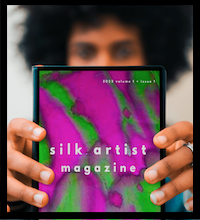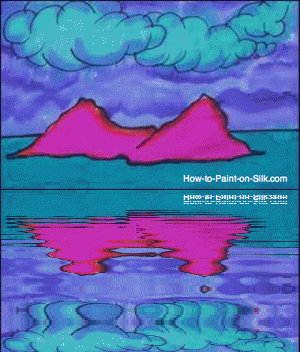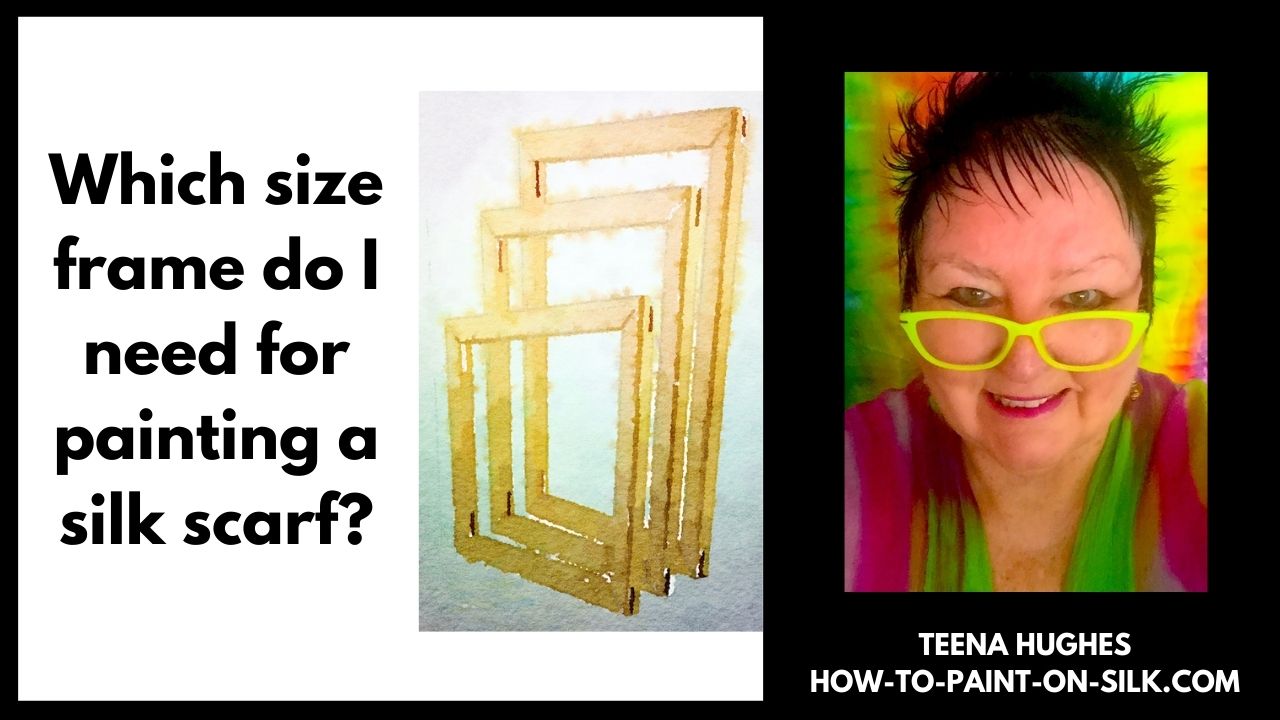
Wondered “Which size frame do I need for the silk?”
Are you about to paint on silk and you’d like to know how I stretch silk for my own silk painting projects?
I recommend one of the least expensive solutions:
View Artist Stretcher bars on Amazon >>
They are available worldwide in art supply stores and other places online, and I’ll list a few Australian stores below. The brand I have found when travelling overseas and within Australia is Fredrix Artist Stretcher Bars (view on Amazon US).
Apart from price, the other main reason I love these wooden frames is because they are SO EASY to assemble – and to pull apart. When teaching students all over the world, this has been the easiest and most cost-effective solution for me to teach.
Let’s get started!
The first step is to know the measurements of the silk. In this case, let’s use a square silk scarf as an example. The photo below shows one of my own handpainted silk designs as a large square scarf.
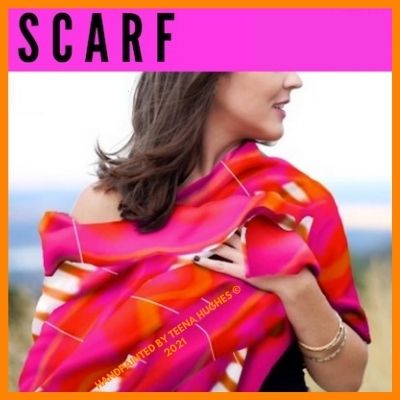
In my experience, the most common size for a square scarf is:
- 92x92cm / 36×36 inches
If I lay a square wooden frame on a table in my art Studio, and then lay a scarf inside that frame, I notice the following:
- the scarf needs to be stretched towards the wooden frame on four sides
- I will need to leave a slight gap between the silk and the wooden frame
- the width of each of the wooden bars is approximately 4cm/1.5 inches
- I decide to allow a total of 5cm / 2 inches on each of the 4 sides of the scarf
The wooden frame dimensions (outside measurements) need to be:
- 92cm + 5cm + 5cm = 102cm / 36″ + 2″ + 2″ = 40″
- so 102cm/40″ x 102cm/40″.
This gives me a starting point to know which size wooden stretcher bars I need.
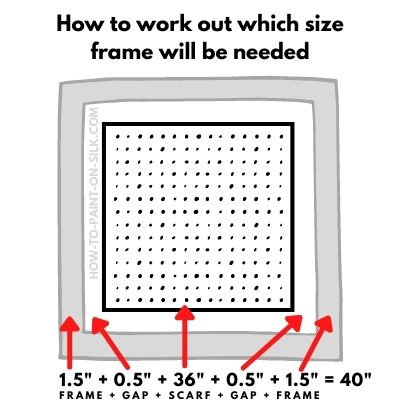
Other things to consider
The type of silk being painted
- if the silk is Habotai (weight 8 Mommie), it will stretch a small amount to be tightened on the frame
- when the Habotai silk is wet, it loosens the weave and can “sag” on the frame
- the silk might need to be tightened even further as it becomes wet, so I need to consider this for the size of the wooden frame – should I use a larger size? The answer to this comes after much practice and handpainting many types of silk over many decades (around 40 years already!)
- if the silk is a heavier weight (Crepe de China [China Silk], Twill, etc) it will be a thirstier silk and will need much more dye to saturate it, and may also need to be stretched much further. If this is the case, it may also need a larger frame.
My Recommendations
- start with the idea of a smaller project, for example 25cm/10-12″ square
- buy and assemble a small wooden frame from 4 x stretcher bars
- paint the silk, stretch it half way through, experiment, and learn how to adjust your painting techniques – this will help when working on larger projects.
Easy-to-make Frames for larger Projects
Over the past few years many people around the world have started making plastic frames from white plastic plumbers’ tubes. These are great!
- easy to assemble and pull apart
- easy to wipe down
- can be made into many sizes and shapes
Can’t afford to buy artist stretcher bars?
If you’re on a very tight budget and you’re happy to pop over to your local Bunnings / hardware store:
- work out the measurements you’ll need
- and ask if they can cut lightweight wood for you
- also ask if they can “staple” the corners together to make a square
- or if they can recommend a very strong glue to glue the 4 sides together.
- This will be a makeshift solution if you need this in a hurry.
If you have more time:
- ask them to drill holes in the 4 corners
- and to recommend which nuts/wingnuts and bolts to buy to attach the corners together.
- This is how I created my own frames for many, many years 🙂
Where To Buy Artist Stretcher Bars Online within Australia
- Etsy >>
- TheArtShopcom.au Pricing >>
- ArtShedBrisbane.com.au >>
- and many more
Before You Go … The One Frame I do NOT recommend
Many years ago I tried lots of types of frames for my silk painting, and the one type which drove me crazy with its inflexibility was the one with cut-out sections on each side of the frame.
Why?
- it was impossible to re-stretch the silk as it got heavier with dye
- it was clunky and fell apart easily if bumped
- it wasn’t practical
- a beginner could be easily overwhelmed and disheartend trying to use this type of frame – and as a beginner, it needs to be MUCH easier than trying to master this …
It looked like this:

I was so releived when I started using the Fredrix Artist Stretcher bars – so quick and easy to assemble, resize and pull apart 🙂
Have a fabulous day!
I hope this info on the frames I use (and don’t use) for painting on silk has helped – if you have any questions, please get in touch and I’ll do my best to help 🙂
- contact me on Facebook
- contact me on Youtube
- contact me by writing an email
- send me a voicemail on my website – there is a long button on the right hand side of the screen
- please note that this article contains a couple of affiliate links which means I may receive a few cents if you buy something from Amazon after you click a link.
Have a spectacular day arty-farty person 😀
See you soon!

Teena Hughes







